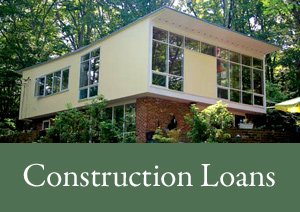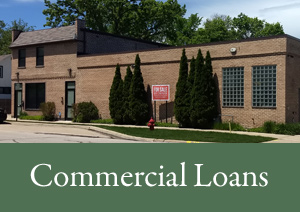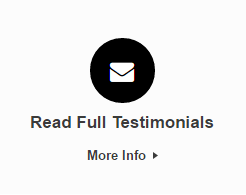Category: Uncategorized
How Does a Commercial Mortgage Benefit Small Businesses?

Small businesses often face unique challenges when it comes to securing financial stability and planning for growth. In this article, we’ll delve into the various ways in which commercial mortgages can provide significant benefits to small businesses, enabling them to achieve their long-term goals and aspirations.
Access to Property Ownership
One of the most significant advantages of obtaining a commercial mortgage is the opportunity it provides for small businesses to gain access to property ownership. Unlike renting, which involves ongoing expenses with no potential for equity accumulation, owning commercial property allows businesses to build assets and establish a sense of permanence within their community.
Stability and Control
Commercial mortgages offer small businesses a level of stability and control that leasing simply cannot match. With fixed mortgage payments, businesses can budget more effectively and plan for the future with confidence, knowing that their monthly expenses will remain consistent. Additionally, ownership gives businesses the freedom to customize their space to suit their unique needs and preferences.
Equity Building
As small businesses make regular mortgage payments, they gradually build equity in their property. This equity serves as a valuable asset that can be leveraged for future growth and expansion initiatives. Whether it’s financing renovations, purchasing additional equipment, or funding new projects, the equity accumulated through a commercial mortgage provides businesses with increased financial flexibility and opportunities for long-term success.
Potential for Income Generation
Owning commercial property opens up opportunities for small businesses to generate additional income streams. By leasing out unused space within their property, businesses can earn rental income that can help offset mortgage expenses and contribute to overall profitability. This passive income can provide businesses with a steady cash flow and serve as a valuable source of revenue over time.
Tax Benefits
Commercial mortgages offer small businesses a range of tax benefits that can help reduce their overall tax liability. For example, businesses can deduct mortgage interest payments from their taxable income, lowering their tax bill each year. Additionally, commercial property ownership may qualify businesses for other tax deductions, such as depreciation allowances, further enhancing their financial position.
Flexibility for Growth and Expansion
One of the key advantages of commercial mortgages is the flexibility they provide for small businesses to pursue growth and expansion opportunities. As businesses build equity in their property, they can leverage this equity to access additional financing for various projects and initiatives. Whether it’s expanding operations, opening new locations, or investing in technology upgrades, the flexibility offered by commercial mortgages enables businesses to adapt and thrive in a dynamic marketplace.
Enhanced Credibility and Perception
Finally, owning commercial property can enhance a small business’s credibility and perception in the eyes of customers, clients, and investors. Property ownership signals stability, long-term commitment, and financial strength, instilling confidence in stakeholders and reinforcing the business’s reputation as a reliable and trustworthy entity within its industry.
Conclusion
In conclusion, commercial mortgages offer small businesses a wide range of benefits, from access to property ownership and stability to equity building, income generation, tax advantages, and flexibility for growth. At 1st Eagle Mortgage, we understand the importance of commercial mortgages in empowering small businesses to achieve their goals and aspirations. With our expertise and dedication to personalized service, we’re here to help small businesses navigate the commercial mortgage process and secure the financing they need to succeed in today’s competitive marketplace.
March 14th, 2024 by Herb Levin
No comments yet5 Reasons A Reverse Mortgage Could Benefit You

If you’re like a lot of people, you may be wondering if a reverse mortgage is ideal for you. While there’s no one-size-fits-all answer to that question, it’s important to first understand what a reverse mortgage is.
What is a reverse mortgage?
A reverse mortgage is a loan that allows homeowners over the age of 62 to borrow money against the value of their home. It can be a great option for those looking to access some of the equity they have built up in their home, without having to sell it.
It can be a helpful financial tool for seniors who want to supplement their income, cover unexpected costs, or pay off their mortgage sooner.
In this post, we’ll break down five reasons a reverse mortgage could benefit you – so you can decide if it’s the right option for you.
Keep reading to learn more!
It gives you financial flexibility for retirement
When people retire, they often find themselves in situations where money is tight but there’s still an essential need to maintain some level of living comfortably. Many homeowners have found success in taking out loans from their homes as opposed to getting social security payments or relying on their spouse’s income.
With expenses such as healthcare and day-to-day living costs continuing to rise, while income levels remain stagnant or decline; getting a reverse mortgage allows you to afford these necessities much easier over time. This is because you can use your home equity to supplement your income.

You can use the money from the loan for any purpose, including paying off debts, making home improvements, or covering living expenses.
With a steady stream of income coming through, seniors are able to cover their expenses in retirement. So if you want more financial flexibility and to improve your overall quality of life, you should consider getting a reverse mortgage.
You can stay in your home as long as you want
If you’re struggling to make ends meet, a reverse mortgage could give you the freedom to stay in your home and not have to worry about making monthly mortgage payments.

With a reverse mortgage, you can choose to receive a lump sum of cash, a line of credit, or monthly payments. This extra cash can help you cover your living expenses and allow you to stay in your home longer.
You don’t have to pay taxes on the income
One of the key benefits of a reverse mortgage is that you don’t have to pay taxes on the income you receive from the loan. This is because the IRS considers the money as “loan proceeds” as opposed to an income you earned. Subsequently, the money you receive from the reverse mortgage will have zero impact on your Social Security or Medicare benefits. This can be a big help if you’re retired and living on a fixed income.
You’re protected if the balance goes over your home’s value
If you’re worried about taking out a reverse mortgage because you think your home’s value could drop and leave you owing money, don’t be.
Contrary to a traditional mortgage, there are no monthly payments required. So, if the value of your home decreases and your reverse mortgage loan balance increases, you don’t have to worry about failing to pay the loan. The lender won’t be able to pursue any assets other than your home to satisfy the debt.

With a reverse mortgage, you’re protected from having to pay back more than the value of your home. So if you sell your home to pay off a reverse mortgage, the lender will cover the difference between the sale price and the amount you owe.
There are no monthly mortgage payments
A reverse mortgage, unlike a traditional mortgage, does not require monthly payments because the lender pays them. The borrower does not need to make monthly payments until the borrower dies, sells the home, or permanently moves out of the home.
As long as you live in the home and don’t breach the terms of the reverse mortgage agreement, you don’t have to make any payments on the loan until it comes due.
This can be a helpful option for seniors who are no longer able to work or don’t have enough income to cover their monthly expenses.
Contact 1st Eagle Mortgage to get a reverse mortgage today
Reverse mortgages are one of our specialties at 1st Eagle Mortgage. We have decades of experience in the mortgage sector and have the expertise to guide you through this process.
March 10th, 2022 by Herb Levin
No comments yet5 Steps to Refinance Your Mortgage

Are you feeling stuck in your current mortgage situation? Is your monthly interest payment too high? If so, you’re not alone – refinancing is one of the most popular strategies for saving money on your mortgage.
However, refinancing can be a complex process, so it’s important to take the time to plan ahead and make sure you’re doing everything correctly. But before you get started, there are a few things we should go over.
What does it mean to refinance your mortgage?
When you refinance your mortgage, you are essentially taking out a new loan to pay off your existing mortgage. This new loan will have terms that differ from your previous mortgages, such as a lower interest rate, a longer loan period, or both.

Refinancing can be a great way to save money on your monthly mortgage payments and it can also help you pay off your mortgage faster!
When should you refinance your mortgage?
When interest rates drop
If interest rates have dropped since you originally took out your mortgage, it could make sense to refinance to get a lower rate. This could save you money in the long run, as you’ll end up paying less interest on your mortgage loan.
When you want lower monthly payments
If you’re having a hard time paying your mortgage on a monthly basis, then refinancing can be a good option. By refinancing to a lower interest rate or extending the term of your loan, you’ll be able to save money every month.
When you want to cash out equity from your home
If you’ve been diligently making payments on your mortgage, chances are you now have some equity built up in your home. Refinancing allows you to tap into this equity and use it for other purposes, like home upgrades and debt repayment.
When you want to pay off your loan sooner
If you’re looking to become mortgage-free sooner, refinancing into a shorter-term loan could be a good option. This will likely mean higher monthly payments, but you’ll pay off your loan more quickly!
Should I refinance my mortgage?
Understanding your goals for refinancing allows you to take advantage of saving money on your mortgage payments. Furthermore, having a solid plan in place will help you make the most out of refinancing and avoid any potential issues in the future.
So if you feel like any of the reasons mentioned above pertain to you, then refinancing may be the right option for you.
In this post, we’ll walk you through five steps to refinancing your mortgage to help make the process as smooth and stress-free as possible!
1. Know your credit score & home equity
Your credit score is one of the most important factors in determining whether or not you qualify for a refinance. Lenders will use your credit score to determine your risk level and whether or not you’re likely to default on your loan.

The higher your credit score, the better chance you will be eligible for a lower interest rate. You can check your credit score for free online or through your credit card company or bank.
Another factor that will affect your ability to refinance is your home’s equity. Equity is the portion of your home’s value that you own outright. To qualify for a refinance, you’ll need to have enough equity in your home to cover the cost of the new loan.
2. Shop around for the best rate
Once you’ve determined your credit score and home’s equity, it’s time to start looking around for the best refinance rate. With so many different lenders out there, it’s important to compare rates and terms from multiple lenders to get the best offer.
Don’t just focus on the interest rate – also look at the fees and closing costs associated with each loan. To estimate your monthly payments and compare loans side by side, you can use a mortgage refinance calculator.
3. Get Pre-Approved for a Loan
Once you’ve found the best home loan refinance, it’s time to get pre-approved for a loan. Getting pre-approved will give you a better idea of how much money you can borrow and what your monthly payments will be.

Pre-approval gives you a conditional commitment from the mortgage lender for a specific loan amount, allowing you to move forward with your home purchase knowing that your financing is in place.
4. Apply for the Loan
Once you’ve been pre-approved, it’s time to apply for the home loan refinance. This is where you will need to get your financial documents in order. It shows the lender that you’re a responsible borrower and have the financial resources to cover your mortgage payments.
The process will vary depending on the mortgage lender, but generally, you’ll fill out an online application and then submit supporting documentation about your income, debts, and assets.
5. Close on your loan

After your home loan refinance is approved, it’s time to close on it. This involves signing a bunch of paperwork and paying any closing costs. Once everything is finalized, your new loan will be in place and you can start saving money.
Takeaway
If you’re thinking about refinancing your mortgage, these five steps will help you get the process started. Just be sure to do your research and compare rates and terms from multiple lenders before making a final decision!
For more information on refinancing and to connect with 1st Eagle Mortgage, visit our homepage.
February 15th, 2022 by Herb Levin
No comments yetWhat Home Buyers Can Expect From Mortgage Rates in 2022

With inflation on the rise and a recovering economy, home buyers will have to put on their brave faces and go to bat for their dream homes in 2022. The good news is, most financial analysts and experts agree that the market shouldn’t be nearly as intense as in 2021.
Most economic pros predict mortgage interest rates will rise in 2022.
Most experts agree that mortgage rates will slowly climb to about 3.6% by the end of 2022. The Federal Reserve is tapering asset purchases, and everyone will feel the effects on mortgage rates. Moreover, inflation is rising, and a slowly recovering economy will put pressure on mortgage rates.
However, if you’re a home buyer, don’t be discouraged. While rates are ticking upward, they are still pretty low. Suppose other aspects of real estate improve, such as if inventory or pricing becomes more buyer-friendly, higher rates won’t feel as heavy of a burden. That said, our advice is not to wait to start looking and planning.
What does this mean for home buyers?

– There will be a shortage of homes for sale. Many millennials are trying to buy houses right now, and there have not been enough houses built over the past decade to reach their demand. Limited inventory means more competition
– There will be lots of competition. Be prepared by understanding what you can afford, having a list of your needs in a home, and acting fast when you find a home that meets your requirements. Of course, avoid panic buying because you feel the pressure to move quickly. Know what you can afford and honor your list of needs/wants in your home.
– Home prices will continue to rise, but at a slower pace than 2021. Home values skyrocketed in 2021, and while prices aren’t expected to drop in 2022, they will likely increase at a much slower rate than last year. Buyers will probably still face competitive bidding wars, but they won’t be as frequent or intense as last year.
5 tips for first time home buyers on how to prepare for the 2022 market:

1. Do your research way ahead of time. Since mortgage interest rates will likely go up, this could affect your buying power. Understanding your financial situation is essential, and researching neighborhoods you know you can afford will be beneficial.

2. Improve your credit score.If you’re worried about the rising interest rates, focus on increasing your credit score. The higher your score, the more likely you’ll get approved for a more affordable interest rate and a home loan that meets your financial goals.
3. Save for a down payment. Home prices are higher, and you need to save up to put cash down on your down payment if you don’t have the funds already. The good news is there are still loans for as little as 3% down, so make sure you have the cash and work with the right people to get you a great rate. If you need to save up, consider getting a side gig on top of your current job or selling some of your personal items to earn some extra cash.
- Find a lender that works for your long-term financial goals. Finding the right mortgage loan is always an important aspect of buying a home, especially when prices are inflated. This is where 1st Eagle Mortgage can step in and help. They’ll find a home loan that meets your individual financial needs and connect you with lenders you wouldn’t be able to access on your own. More options mean more likeliness that you’ll find the right home loan option for you. There are several other advantages to working with a mortgage broker. Check out their website for more information.
- Understand what you can afford to avoid panic buying. Understanding your finances and what you can afford is a critical part of being a homeowner. You need to thoroughly comb through your finances and understand your situation before you start even looking for a home so that you don’t panic buy and get stuck with a home and mortgage you can’t afford.
Contact 1st Eagle Mortgage to navigate buying a home in 2022.

As a dedicated mortgage broker service, 1st Eagle Mortgage promises to connect you with a mortgage loan that fits your financial needs and walks you through every step of the home buying and application process.
They have numerous connections to mortgage lenders that you wouldn’t have on your own that can offer lower interest rates, regardless of your financial history. For example, 1st Eagle Mortgage provides home loans for as little as 3% down, even if you have declared bankruptcy, had a short sale or went into foreclosure.
To learn more about 1st Eagle Mortgage, visit our website.
February 2nd, 2022 by Herb Levin
No comments yetThe Key Differences in Using a Mortgage Broker vs. Bank

Have you been dreaming of buying a home and think you’re ready to start the process? Time to figure out how to get approved for a loan, and the process can be a little complicated, especially if you’re a first-time home buyer.
Before you start loan shopping, you need to figure out what the best option is for you – how should you find the best rates? Who can help you? Should you depend on your bank for a mortgage, or look into a mortgage broker? Going into this process armed with knowledge is key to getting the best loan options possible.
Let’s break down the differences:
What is a mortgage broker?

A mortgage broker is essentially a middleman between you and the mortgage lenders. They have connections to a wide range of lenders and can therefore give you access to a wide range of loan options.
If you’re self-employed or have less-than-perfect credit, a mortgage broker could be a great option for you. They can find your results and connect you with multiple types of mortgages you wouldn’t have access to alone. A good mortgage broker can break down how all the moving parts of interest rates, down payments, and closing costs.
When you work with a mortgage broker like 1st Eagle Mortgage, for example, you can feel at peace knowing the team will guide you through the step-by-step process of finding a solid home loan option and getting approved. They also make it their priority to connect you to a lender that will benefit your long-term financial goals.
What is the process for bank mortgages?

When you work with a bank, you will fill out a loan application and meet with a loan officer who will review some options with you. While the process is pretty straightforward, it does have some shortcomings to be aware of.
Working with banks can be limiting, and you have to do your homework. If you speak to only one bank, you’ll never know that there are much better rates out there for you. Your credit score could qualify you for a much better rate somewhere else, so you should talk to as many as possible to see which will work best in your favor.
Key differences and how to determine which is best for you.

Both options have solid pros, but the key differences are:
Mortgage brokers offer a wide selection of choices and, when you work with a mortgage broker like 1st Eagle Mortgage, they’re committed to holding your hand throughout the loan process and guiding you each step of the way. They are also determined to find you the best rates and find a loan that benefits your personal finance goals.
Not to mention, they have connections to multiple lenders you wouldn’t be able to access alone that could benefit your financial situation. And as you probably know, your financial situation is imperative because it typically determines your rate. But if you have less-than-perfect credit, are self-employed, or have a sticky financial past, 1st Eagle Mortgage can connect you to loans that will not only work for you but also benefit you. For example, they offer loans for as little as 3% down, even if you have declared bankruptcy, had a short sale, or went into foreclosure.
Getting a mortgage from your bank or credit union is a simple process, and they could have great options for you. They also may offer you relationship perks for selecting them. However, you have to do thorough research and make sure you shop around a lot. While your bank may promise you the interest rate offered is a great deal, a mortgage broker has relationships with several lenders and could get you an even better rate.
You get to decide.

It’s nice to have options when it comes to taking out a mortgage. It’s a big commitment, and you want to make sure the loan you choose works for you and your financial situation.
As you are shopping around and trying to determine what path works for you, make sure you do your research. Determine and thoroughly break down what your financial situation is, and ask the broker or bank these important questions:
• How long will the process take?
• What loan options do you think I will qualify for?
• How much will closing costs be?
• Is there anything in my loan application that will make it hard to get approved?
• What can I do to improve my financial situation?
For more information and to connect with 1st Eagle Mortgage, visit our website.
February 2nd, 2022 by Herb Levin
No comments yet5 Tips to Get the Best Mortgage Rate

1st Eagle Mortgage breaks down 5 ways to improve your chances of getting the best mortgage loan rate on the market.
There are some great mortgage loan options out there, but you have to qualify for them, and that can take work. To be eligible for better loan rates, lenders look at your credit, employment history, location of your property, and much more. So what can you do to get the best mortgage rate possible?
Learn 5 tips from 1st Eagle Mortgage to find out.
1: Improve your credit.

Giving your credit score a boost is one of the most important things you can do to get a good loan, and it also increases your chances of getting a loan in the first place.
To improve your credit score, pay off as much as you can on revolving account balances, catch up on past-due payments, and don’t miss payments. Another trick for improving your score quickly is to ask for a credit line increase and don’t spend any of it.
If you can improve your score even a little bit, it can make a huge difference in your eligibility for a good mortgage loan. With that said, if you have less-than-perfect credit and have done everything you can to improve it already, 1st Eagle Mortgage can work with you and connect you to multiple loan options that you could be eligible for.
2: Build steady employment.

It’s best not to switch jobs or quit your job right before you apply for a loan, because lenders look at your employment history and want to know that you have steady income coming in.
So unless you’re getting promoted into a new role with a salary increase, it’s best to stay where you’re at and keep things consistent while you’re going through the home buying process.
3: Save for a down payment.

The more cash you put down on your home upfront, the less you need to borrow from a lender, which also means there’s less risk you pose for them. If you pose less of a risk for them, you will probably also get a lower mortgage rate.
While sometimes you can get away with putting down a smaller down payment, experts suggest putting down at least 20% of the cost of your home. On the other hand, you don’t want to drain your savings to pay for a down payment. Keep in mind you’ll also need to pay closing costs, and lenders typically check your account at the end of the loan process to make sure you have at least two months of mortgage payments ready.
So instead of relying on savings, find other ways to raise money, like getting a side gig or selling that old baseball card collection of yours.
4: Shop and compare multiple different lenders.

It’s essential to not settle for the first loan option you’re presented! Look around and compare multiple different rates, because rates can vary drastically from one lender to another.
When you work with a mortgage broker like 1st Eagle Mortgage, you’ll get connected to multiple different lenders you wouldn’t have access to otherwise that might be the best financial option for you. The team of mortgage brokers at 1st Eagle will help you vet through options and find a loan that best fits your long-term financial goals and needs.
5: Consider a 15-year mortgage
Since shorter-term loans pose less of a risk than the traditional 30-year mortgages do, you may find a better rate when exploring this option. However, know that your monthly payment cost will be higher. You could also consider doing an ARM (adjustable-rate mortgage), which may have a low rate, but also keep in mind the rate could increase during your loan term.
Consider working with a mortgage broker to get connected to multiple loan options, regardless of your financial situation.

While you want to make sure you do everything you can to improve your credit and have a solid financial and employment history, know that at the end of the day, you can still have great options for mortgage rates.
There are several benefits to working with a mortgage broker, including the fact that they will find you a loan that fits your needs at the best rate on the market. Whether you’re a first time home buyer, downsizing, refinancing, or a commercial property owner, their goal is to make your loan application process as stress-free as possible for you.
To learn more about 1st Eagle Mortgage, visit our website.
February 2nd, 2022 by Herb Levin
No comments yetWhat All First-Time Homebuyers Should Know

Mortgage broker shares 6 lessons when buying a home for the first time.
Buying your first home is one of the most exciting, emotional and sometimes stressful events in your life. Not only is it the largest chunk of change you’re ever going to invest in, but it’s also a more permanent place to lay roots down and have somewhere to call yours.
Whatever your reason for being ready to buy a home, we congratulate you. But there are some essential lessons you need to learn before going into the home buying process. At 1st Eagle Mortgage, we’re happy to break these lessons down with you and walk you through the buying process.
Learn the most essential things to do when you’re a first-time homebuyer:
Lesson 1: Break down and understand your finances before you shop for a house

If you think you’re ready to buy a house without consulting with your finances first, you’re wrong. This is the first step in figuring out your options and what you need to do to proceed. What’s your credit score? How much debt do you have? Do you need to clear up any incorrect data in your payment history? You need to understand what your financial situation is before going into the mortgage lending process.
Lesson 2: Consider all your home loan options
Understanding where you’re at financially comes into play during the loan because usually, the best loan rates are reserved for those with high credit scores and healthy financial histories. However, don’t fret if you do not have a solid financial portfolio or have complicated finances.
This part is where using a mortgage broker can help you. Mortgage brokers like 1st Eagle Mortgage can assess your financial situation and connect you to the best loan options for your needs.
While the best loan rates are usually reserved for those with high credit scores, 1st Eagle Mortgage has a variety of lenders that you wouldn’t have access to on your own that offer as little as 3% down, even if you have declared bankruptcy or had a short sale. Our goal at 1st Eagle Mortgage is to connect you to a lender that best aligns with your long-term financial goals.
Lesson 3: Work with people who you trust

This is a vital lesson. Everyone on your home buying team – from your realtor, to your mortgage broker, to your inspector – should be someone you have researched and who you feel you can trust. You want to be on the same page with everyone, too, so make sure you’re staying in close communication with each professional as the process goes on.
Lesson 4: Go into the home search with a plan

While shopping for houses is a blast, you can’t just pick one solely because it’s pretty. You need to go in with an idea of what you want and need in a home. Are you having kids soon and need a nursery? What kind of area do you want to be in? How many rooms? Do you work from home and need an office? How important is the kitchen size to you? Making a bullet list of things you for sure need in a home will help your realtor pinpoint your perfect dream home.
With that said, it’s important to be realistic and know how to separate the things you need versus the “nice-to-haves.” Narrowing your search too much can be limiting.
Lesson 5: Consider all the costs of homeownership
Do you know what all goes into purchasing a home? Yes, there’s the down payment and monthly mortgage payments, but there’s also inspection, closing costs, legal fees and potentially home repairs – time to get out a spreadsheet and list everything you will need to purchase. You need to be realistic about each cost and do extensive research, and then give yourself a healthy cushion for any surprises that happen along the way.
Lesson 6: Be patient and logical

Like we stated before, buying your first house can be an emotional experience. Be patient and do not rush through the process. Give yourself enough time at each step and stick with a timeline. While easier said than done, it’s also important not to get too attached to one house. You need to look at houses from a logical perspective and know when to walk away if the deal is a bad one.
For information on 1st Eagle Mortgage and more tips for first-time homebuyers, visit our website.
December 30th, 2021 by Herb Levin
No comments yet8 Tips for a Smooth Home Purchase

What all first-time homebuyers need to know
So you think you found your dream home – you’ve envisioned your family there, what you want the living room to look like, and are already picking out furniture. Congratulations, but before you buy that sofa, you need to go through the lengthy process of buying the actual house.
Buying a home is probably the largest and most emotional purchase you’ll ever make, especially for first-time homebuyers. With that said, it can also be a complicated, frustrating process if you don’t have solid knowledge about what to expect going into it.
At 1st Eagle Mortgage, we’re here to guide you and hold your hand through the mortgage loan application process and beyond. Learn our eight tips for how to ensure your home purchase goes as smoothly as possible:
1. Plan out your finances.

Time to get out some spreadsheets and plan out this purchase. Prepare for every single financial line of buying a home – HOA fees, closing costs, home repairs, inspections, taxes…All these costs come with owning your home, and they can add up. Give yourself a healthy cushion on your budget so you can accurately plan for these needs.
2. Be careful with your credit.

After 1st Eagle Mortgage connects you to the perfect loan for you and you’re approved, you need to understand certain dos and don’ts. For example, do keep paying your rent or mortgage and all your bills on time. But don’t make a big purchase, like a car, for example, or go crazy charging your credit card bill with all your home décor shopping. These mistakes could seriously hurt your credit and therefore cost you your dream home.
3. Prepare for the worst.

Like we said, home buying can often be a complicated and frustrating experience. A crisis can pop up at any moment – during the loan approval process, inspection, closing. Prepare for if and when something unexpected happens by leaving a lot of room in your budget for surprise costs and make sure you have the right professionals on your team that can walk you through how to handle the situation.
4. Don’t wait on the home inspection.

First of all, you usually have to schedule an inspection in a certain period of time, and it’s one of the most critical parts of home buying when it comes to negotiating the offer. Make sure you move quickly on this part so you can find a highly rated inspector who can get the job done well.
5. Stick to the contractual timeline.

Your offer was accepted – congrats! Does that mean you’re done? No. To avoid delays in closing, make sure you’re following the timeline given. Also, make sure everyone on your team (realtors, lender, escrow, etc.) is on the same page with this timeline. Communication is key here.
6. Treat the investment like a business.

Think of your home as your business. You’re putting a large investment into it, and you need to know when to walk away from a bad deal. Try to think more with your head than your heart and emotions that tell you this house is “the one”, because this purchase is very important, and, like dating, there are always more fish in the sea.
7. Don’t get too emotional.

Speaking of emotions, don’t get too upset if the deal you thought was your dream home falls through, or you have to walk away. But also, regarding negotiations, don’t get too hung up on minor cosmetic changes that you can fix later. Stay focused on the big picture.
8. Find a team you can trust.

We can’t stress enough how important it is that each member of your home buying “team”, from your mortgage broker to your realtor to your escrow officer, be professionals you can count on. At 1st Eagle Mortgage, we pride ourselves in ensuring we’ll find the perfect loan for your financial needs at the best possible rate. We make the mortgage experience easy and understandable by holding your hand every step of the way and breaking down complicated financial matters for you.
To learn more about 1st Eagle Mortgage and how to improve your home buying experience, visit our website.
December 30th, 2021 by Herb Levin
No comments yet4 Key Benefits of Using a Mortgage Broker

What is a Mortgage Broker?
A mortgage broker is a licensed professional who can help you navigate the home-buying process by connecting you to the right mortgage lender for you, based on your financial situation. Essentially, mortgage brokers act as a bridge between the homebuyer and lender.
There are several benefits to working with a mortgage broker and several things to keep in mind as you’re searching for one. See below for four benefits of using a mortgage broker.
4 Benefits of Using a Mortgage Broker
1. They offer a wide variety of loan options.

A major benefit of using a mortgage broker is the fact that they have access to multiple different home loans you wouldn’t have access to on your own. This is important because the broader range of access means they have a more significant opportunity to connect you with a lender that matches your specific needs.
2. They will pinpoint the best type of deal for your specific needs.

There’s no doubt that buying a home can be stressful, and mortgage brokers help to mitigate that burden by finding you the best loan option for you.
Everyone has different needs, and you may have a challenging financial situation – maybe you have less-than-perfect credit, or run your own business. A mortgage broker will tailor their searches so that they will benefit your long-term financial goals. For example, 1st Eagle Mortgage offers loans for as little as 3% down, even if you have declared bankruptcy, had a short sale or went into foreclosure.
3. They have the right expertise to help you through each step of the process.

Mortgage brokers are licensed professionals who know the ins and outs of the loan process and have the best knowledge on which loan and lender are right for you. For example, 1st Eagle Mortgage has over 20 years of experience, knows hundreds of lenders, and understands what types of loans will benefit different financial needs.
4. They can save you valuable time, energy and money.

Your home is one of the largest, if not the largest, purchase you’ll ever make. No pressure! Obviously, finding the right financial path for your needs is a critical, nerve-racking process.
Mortgage brokers will hold your hand through every step of the lender process and save you time and energy in the process. And since a mortgage broker is offered loans on a wholesale basis from lenders, they can offer the best rates in the market, which means a lower rate for their client.
Contact 1st Eagle Mortgage to Get the Help You Need Today.
At 1st Eagle Mortgage, we are here to help you realize your home buying dreams. We work closely with current and prospective property owners in the Chicagoland area to create tailor-made mortgages to meet their needs.
We work with a multitude of lenders to match you with the right loan, whether you’re a first-time homebuyer, upgrading to a larger home, downsizing, refinancing, or a commercial property owner. Our focus is on you, the customer. We understand that every customer’s situation is unique, and our staff of experienced loan officers considers all aspects of your financial life to customize the right mortgage program for you.
To contact 1st Eagle Mortgage and get started, visit our website.
November 25th, 2021 by Herb Levin
No comments yetA Fed Rate Cut Refresher

This past week was a classic example of how good news means bad news for Bonds and home loan rates.
A little trade deal with Japan, solid housing numbers, and hopeful news on the U.S./China trade dispute was enough to erase the previous week’s modest improvement in rates.
And on top of it all, Fed President James Bullard was out saying the Fed has to cut rates further, despite the U.S. economy doing well. At the moment there is over a 70% chance the Fed will cut the overnight Fed Funds Rate by .25% by years end.
What homebuyers and those looking to refinance must understand is that Fed rate cuts do not equal lower home loan rates. Fed rate cuts are designed to keep the U.S. economic expansion alive while promoting inflation, and if the Fed is successful in that endeavor, there is a limit to how low home loan rates can go.
On the other hand, if the Fed is unsuccessful and our economy slows further, and our inflation rate cools further, then we will see lower home loan rates in the future. Think bad news is good for home loan rates.
Bottom line: home loan rates have essentially moved sideways to slightly higher in the past few weeks, but still remain just above three-year-lows making it a great opportunity to refinance or purchase a home.
If you or someone you know has questions about home loans, give me a call. I’d be happy to help. This article provided by Herb Levin, 847-441-4116
October 8th, 2019 by Herb Levin
No comments yet




